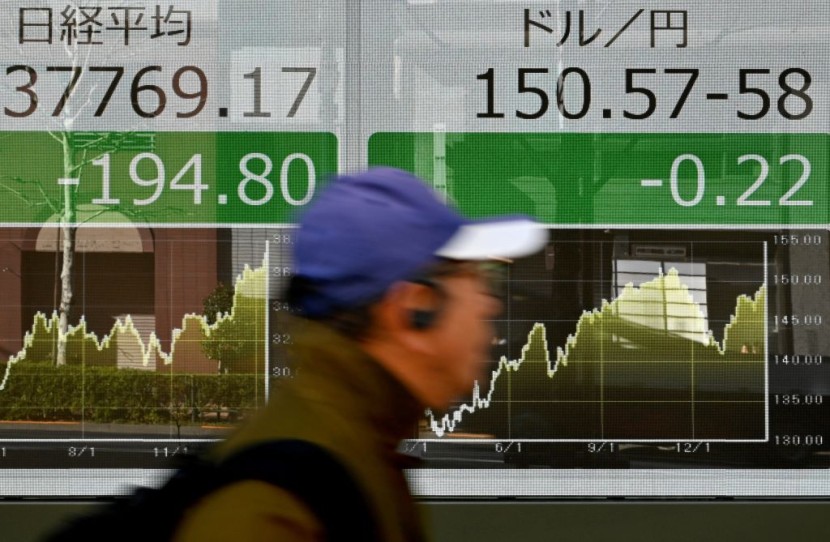Japan's economy took a dip amid a surprising recession that caused the Asian nation to lose its spot as the world's third-largest economy.
The situation comes as Tokyo has been eclipsed by Germany, which took its spot, based on data that was released on Thursday. The fallout is due to the Asian country battling a weak yen and an aging, shrinking population.
Japan in Recession

The country's economy, which has fallen to the fourth largest, grew by 1.9% last year in nominal terms, which means it was not adjusted for inflation. However, in dollar terms, Japan's gross domestic product (GDP) stood at $4.2 trillion compared to the $4.5 trillion that Germany recorded.
The change, which comes more than a decade after Japan placed behind China, has been attributed to the sharp falls of the yen against the dollar over the past two years. A weaker yen eats into profits on exports when earnings are repatriated, as per The Guardian.
In 2022 and 2023, the Japanese yen dropped by nearly a fifth against the U.S. dollar, including a 7% drop that was recorded last year. Similarly to Japan, Germany is resource-poor, has an aging population, and is heavily dependent on exports.
Furthermore, Europe's largest economy has also been shaken by rising energy prices that have been caused by Russia's war in Ukraine, rising interest rates in the eurozone, and a chronic shortage of skilled labor.
While car manufacturers from Japan and other exporters have benefitted from a weak yen since it makes their goods cheaper on the international market, the nation's labor crunch is considered to be much worse than Germany's, and it is also struggling to address a low birthrate.
A Weaker Currency
Economists had expected new data to show that Japan's GDP was able to grow more than 1% in the fourth quarter of last year. The latest statistics were the first reading of the Asian nation's economic growth for the period and could still be revised, according to BBC.
Two quarters in a row of economic contraction is usually what is considered the definition of a technical recession. The International Monetary Fund (IMF) forecasted in October last year that Germany was the one that would overtake Japan as the third-largest economy in the world.
During a press conference in Tokyo this month, IMF deputy head Gita Gopinath said that an important reason for Japan's slip was the yen falling by roughly 9% against the U.S. dollar last year.
Capital Economics' head of Asia-Pacific, Marcel Thieliant, said that whether or not Japan has entered a recession is still debatable. He noted that while job vacancies have weakened, the unemployment rate dropped to an 11-month low of 2.4% in December.
Additionally, the Bank of Japan's Tankan survey showed that business conditions across all industries and firm sizes were the strongest that they have been since the fourth quarter of 2018. Thieliant expects that growth is set to remain sluggish this year as the household savings rate has turned negative, said CNBC.
Related Article:
UN Warns of Economic Fallout as US Labels Yemen's Houthi Rebels as Terrorists
© 2026 HNGN, All rights reserved. Do not reproduce without permission.








